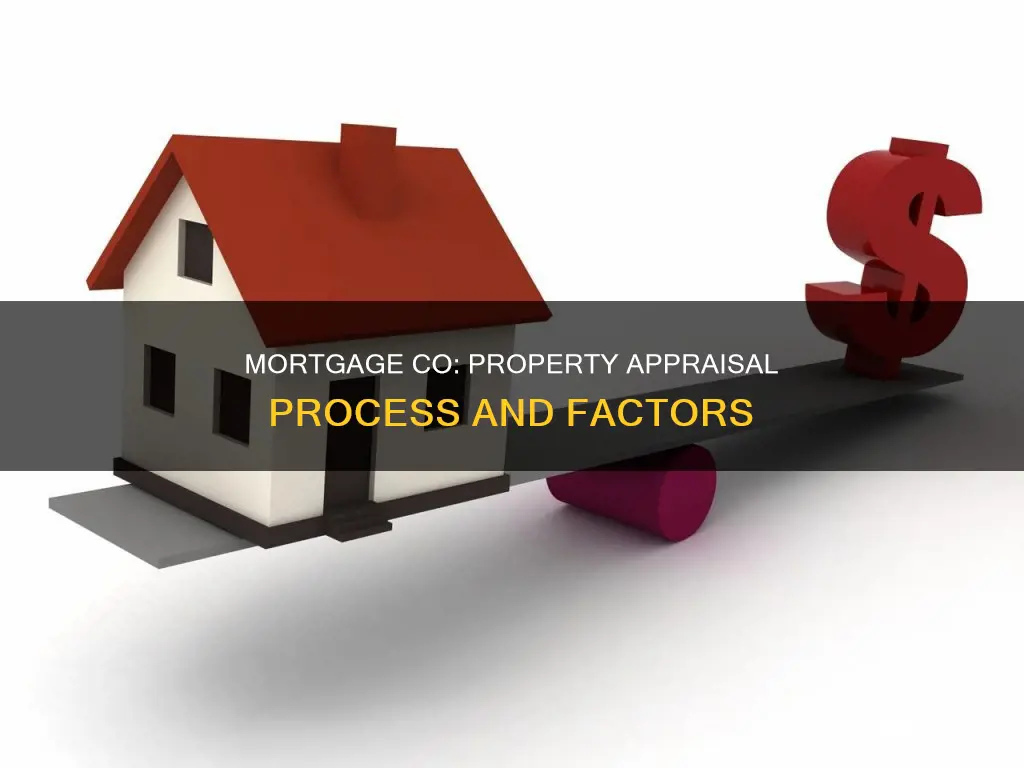
A home appraisal is a crucial step in the mortgage process. It is an objective, professional assessment that determines a property's value and ensures the lender isn't loaning more money than the home is worth. The appraisal is performed by an independent licensed or certified expert who analyses the property's characteristics, market trends, and comparable properties. The report includes detailed market analysis, photographs, and a description of the property's condition. The cost of a home appraisal varies based on factors such as property size, location, and complexity, typically ranging from $300 to $2,000. A low appraisal can delay or complicate the transaction, while a higher appraisal benefits both the buyer and seller.
| Characteristics | Values |
|---|---|
| Purpose | To determine the value of a home before a lender approves a mortgage |
| Who orders it | The lender |
| Who pays for it | The buyer, unless negotiated with the seller |
| Who performs it | A licensed or certified third-party appraiser hired by the lender |
| What's assessed | The home's age, size, condition, location, and market value |
| How it's assessed | In-person or remote appraisal, including a physical assessment of the property and analysis of recent sales of comparable properties |
| Outcome | A formal report delivered to the lender, which may impact the mortgage approval process |
| Cost | Typically $300-$2,000, depending on property type, size, location, and other factors |
| Timing | Performed as early as possible after the two parties agree on a price, with the entire process taking a few days to several weeks |
What You'll Learn

The role of a property appraisal
A property appraisal is a crucial step in the process of buying or selling a home. It is an objective, professional assessment that determines a property's value. This is important for buyers, sellers, and refinancing homeowners. An appraisal is usually carried out by a licensed or certified expert, who produces a report for the mortgage lender. The report includes a detailed analysis of the property's value, influenced by its characteristics and market trends. The appraiser will consider the property's age, size, condition, and location. They will also analyse recent sales of comparable properties in the area and the surrounding neighbourhood.
The appraisal process typically begins after the buyer and seller agree on a price. The lender selects a home appraiser, who will then contact the seller to schedule a visit to the property. The appraiser will review the property's interior and exterior, ensuring it is structurally sound, with no safety issues, and noting any upgrades since the last transaction. They will take photographs and gather information about the property, including its size, location, and any unique features.
The appraiser's report is a critical document in the homebuying process. It ensures that the buyer does not pay more than the property is worth and protects the lender from lending more than the property's value. A low appraisal can delay or even prevent a home purchase, as lenders will not lend more money than the appraised value. In such cases, buyers may need to offer additional funds, renegotiate the price, or walk away from the deal. On the other hand, a higher appraisal benefits the buyer by increasing their home equity and can expedite the sale.
The cost of a home appraisal varies depending on factors such as the property's size, location, type, and condition. The buyer typically pays the appraisal fee, which can range from $300 to $2,000. The appraisal process can take anywhere from a few days to several weeks, depending on the complexity of the property and the appraiser's schedule.
Renegotiating Your Mortgage: Strategies for Success
You may want to see also

How an appraisal is performed
A home appraisal is a crucial part of the home-buying process. It is a report on the estimated fair market value of a home. The report contains detailed analyses and conclusions about the property's value, influenced by property characteristics and market trends. The appraisal is performed by an independent licensed or certified expert who must follow general standards in determining the home's value. The expert will share a copy of the report with the mortgage lender, who is required to share it with the borrower if they request it.
The lender will select a home appraiser who will contact the seller to set a time and date for a home visit. The appraiser will then perform a physical assessment of the property, including an inspection of the property's exterior and interior. They will ensure the property is in good structural shape, confirm the absence of safety issues, and check the functionality of home systems. The appraiser will also analyse recent sales of comparable properties in the area, or "comps", and the surrounding neighbourhood.
The appraiser will count the number of rooms and take photographs of the various parts of the home during the walk-through. They will also take into account any upgrades or renovations made to the property, but only if they are permanent fixtures. The appraiser will then compile all of their findings into a report and generate the home's appraised value. The report will include a description of the home, an analysis of market conditions in the neighbourhood, and exhibits such as photographs of the home and comps, a sketch of the exterior building, and a street map of the area.
The appraisal report is designed to satisfy the mortgage lender, ensuring they are not loaning more money than the property is worth. It can also protect and benefit the buyer, by confirming the home's value and ensuring they do not pay more than the home is worth. If the appraisal comes in lower than expected, it can delay or derail the transaction. In this case, the buyer and seller can agree to a new, negotiated purchase price, or the buyer and lender can agree to another appraisal.
Closing Costs: Rolling Them into Your Mortgage
You may want to see also

The cost of an appraisal
The cost of a home appraisal depends on several factors, including the type of loan used to purchase the home, the size of the home, the cost of the home, the area and location of the home, and the complexity of the report required.
Appraisal fees are generally higher for more expensive homes and properties, and you can estimate appraisal costs at around 0.15% to 0.30% of the home's value. For example, a typical single-family home with a conventional mortgage will cost between $300 and $400 to appraise. A condo is considered a single-family home and will cost between $300 and $500 to appraise. A multi-family home appraisal can cost anywhere between $600 and $1,000, depending on the number of units.
Appraisals with government-backed loans, like FHA, VA, or USDA loans, also tend to be more expensive. These types of loan appraisals can range from $410 to $590 on average and can go up to $900. This is because government-backed loans typically require additional documentation as part of the appraisal report. The appraisal fee for a USDA loan for a single-family home is $750 or $775, while VA loan appraisals cost between $550 and $1,500, with an average price of $732.
The demand for home appraisals is also higher in a competitive real estate market, so you can expect to pay more for an appraisal in a hot market than in a slow market with low demand. Inflation and demand for appraisals have driven costs up recently, especially in certain states like New Mexico, Oregon, and Washington, which have some of the most expensive appraisal costs in the country.
The cost of a home appraisal is typically factored into the closing costs of the home, but if the deal falls through, the buyer usually has to pay for the appraisal anyway. The buyer is typically responsible for paying for the appraisal at closing, but it is possible for the buyer to request that the seller pay for the appraisal as part of seller concessions, which can be negotiated during the offer contract period.
Retirement Savings: Easier Mortgage Approval with a 401k
You may want to see also

How an appraisal impacts a sale
An appraisal is a crucial part of the home-buying process. It is an objective, professional assessment of how much a home or property is worth. It is carried out by an independent licensed or certified expert, who produces a detailed report for the mortgage lender. The report includes a description of the property, its characteristics, and an analysis of market conditions in the neighbourhood. The appraiser will also consider recent sales of comparable properties in the area, the size of the property, its age, and any structural improvements.
The appraisal directly affects the amount of your mortgage loan. This is because the lender gives you a home loan based on collateral, which is the value of your future home. The lender will only extend a mortgage for up to the appraised value. So, if the appraisal comes in lower than the agreed purchase price, the buyer will need to make up the difference. This can complicate a transaction, and the buyer may instead choose to walk away from the deal.
If the buyer wishes to proceed with the purchase, they can negotiate with the seller to lower the sale price. The buyer and lender can also agree to another appraisal to secure a different valuation. If the buyer feels the low appraisal was a mistake, they can appeal the decision to the lender. The buyer can also choose to pay the difference between the sale price and the appraisal value out of their own pocket.
A higher appraisal can also be beneficial to the buyer, as it gives them more home equity. This can help the buyer avoid mortgage insurance and get a home equity loan or line of credit.
Cosigner Impact: Mortgage Approval and Beyond
You may want to see also

What to do if an appraisal is low
A low appraisal can be a shock for homebuyers, but there are a few actions you can take if you find yourself in this situation.
Firstly, it's important to understand why a low appraisal occurs. A low appraisal happens when the appraiser assigns a property value that is below the contract price or lower than expected. The real estate market and the appraiser's understanding of local influences can have the largest impact on the property valuation. Other factors that can affect the appraised value of a property include its age, size, condition, and location. For example, a newer home in a growing subdivision might appraise higher than an old home in a declining community.
If you feel that the low appraisal resulted from an error, you can appeal the decision to your lender. You can also ask your real estate agent to take the lead in pushing back on a low appraisal. If they find a discrepancy in the appraisal report, they can ask for a correction or revision by submitting proof of the oversight and working together with the lender to get the closing back on track. However, your closing might be delayed, and you may have to pay for an additional appraisal.
If you are the buyer, you can try to negotiate a new, lower purchase price with the seller. If the seller agrees to a lower price, you may be able to secure a mortgage for the appraised value without needing to provide additional funds. Alternatively, you can agree with the seller on a seller's financing arrangement that functions like a private loan for all or part of the sale price.
If you are the seller, you may be able to list your home for well above the appraised value and still receive many offers, especially if there is limited housing inventory in your area. However, you will need to work with your real estate agent to list your house at a price that strikes a balance between a market-worthy price and the sale price you desire.
Removing a Name from a Joint Mortgage: A Step-by-Step Guide
You may want to see also
Frequently asked questions
A home appraisal is a report on the estimated fair market value of a home. It is performed by an independent licensed or certified expert who must follow general standards in determining the home's value. The expert will share a copy of the report with your mortgage lender, who is required to share it with the borrower if they request it.
Mortgage lenders require appraisals to ensure they're not loaning the borrower more than the home is worth. The home serves as the borrower's collateral, so the accuracy of the appraisal is significant.
Appraisers take many factors into consideration, including the home's age, size, condition, and location. They also analyse recent sales of comparable properties in the area and the overall market conditions in the neighbourhood.







